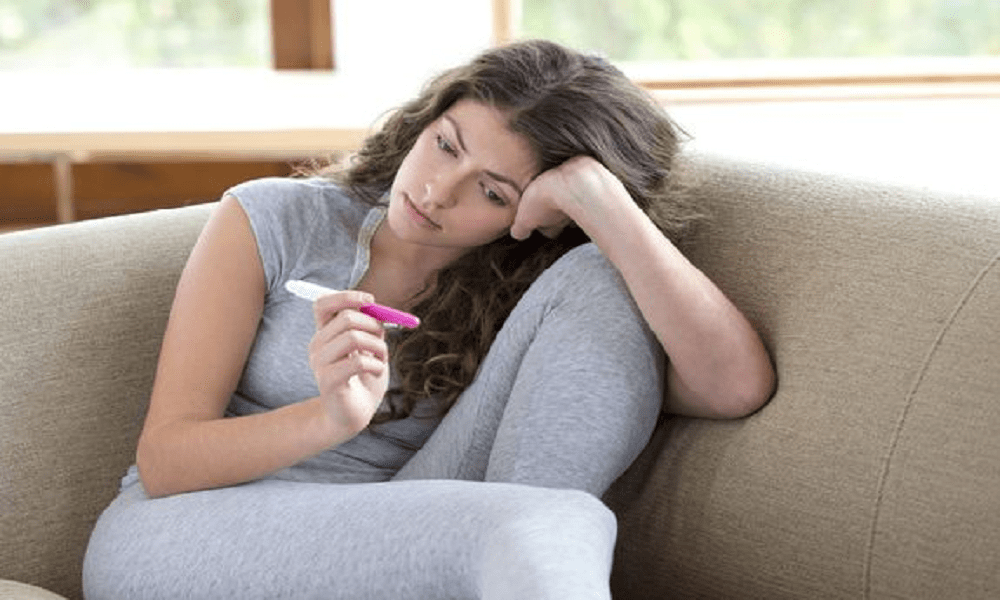Women's Health
The psychological consequences post abortion every woman must know
Psychological Consequences Post Abortion
Women are often surprised to find that abortion may be a traumatic experience. Generally, women are not encouraged to share their responses towards abortion. Often it is kept a secret and women are left alone with their feelings. The grief a woman may experience after an abortion is not often recognized and is often repressed or denied. Post Abortion Syndrome occurs when the grieving process is not totally completed. Our society is just now beginning to recognize the need to grieve a miscarriage, but because abortion is considered a voluntary act, a woman’s effects by mental stress after an abortion is not understood or supported.
The following are few risk factors that are identified after post-abortion:
Post Abortion Stress

While we would be the first to agree that not all abortions may cause obvious distress to all women, nevertheless there is a worth number who do struggle afterward. Research has shown that up to fifty-sixty percent of post-abortive women need antidepressants at the particular stage in their lives, which they often relate back to problems following the abortion.
Increased Smoking With Correspondent Negative Health Effects

Post-abortion is linked with increased cigarette smoking. Women who abort are twice as likely to become heavy smokers and suffer from the corresponding health risks. Post-abortion women are also more likely to continue smoking during following wanted pregnancies with increased risk of neonatal death or congenital anomalies.
Divorce And Chronic Relationship Problems

For most of the couples, abortion causes predicted problems in their relationship. Post-abortion couples are more likely to divorce or else separate. Many post-abortion women develop a greater difficulty by forming lasting bonds with a male partner. This can be due to abortion-related reactions such as lowered self-esteem, substance abuse, sexual dysfunction, greater distrust of males, and increased levels of depression, anxiety, and volatile anger. Women who have more than one abortion that is more likely to require public help, in part of because they are also more likely to become single parents.
Repeat Abortions

Women who have one abortion may be at increased risk of having few additional abortions in the future. Women with a prior abortion experience are 4-5 times more likely to abort a current pregnancy than those with no prior abortion history.
This increased risk can be associated with the prior abortion due to lowered self-esteem, conscious or an unconscious desire for a replacement pregnancy, and increased sexual activity post-abortion.
Alcohol And Drug Abuse

Abortion is also significantly linked with a twofold increased risk of alcohol abuse among women. Abortion is followed by alcohol abuse is linked to violent behavior, auto accidents, divorce or separation, and job loss. In addition to the psycho-social costs of such abuse, drug abuse is linked to an increased exposure to HIV/AIDS infections, congenital malformations, and assaultive behavior.
Eating Disorders

For at least some women, post-abortion is associated with eating disorders such as bulimia, binge eating, and anorexia nervosa.
Recommendations
Get Help
Probably the most important thing you can do when facing an unplanned pregnancy is to communicate with few trained professionals who can answer your questions and discuss with your individual circumstances.
Avoid Isolation
If you are experiencing an unplanned pregnancy, you might have that particular tendency to withdraw from others to keep the matter as a secret and/or to face the issue alone. Although it may be difficult, try to stay connected with family and friends who can support you. Too much isolation under these circumstances can also lead to depression.
Evaluate Your Circumstances
See the situations which are listed previously regarding individuals who are more likely to experience one or more side effects. Discuss your situation with someone who will help you to give perspective and understanding.
Avoid Pressure
Avoid people who are pressuring you to do what they think is the best. Whether you opt to parent, choose adoption, or have an abortion, you are the one who is going to have to live with your choice.
Post-abortion syndrome exists and may be overcome, even if the women believe that they are not allowed to be happy again. A compassionate, unbiased, and appropriate counselor can be more helpful a woman who has undergone an abortion come to terms with her decision and find peace again without a political agenda.




